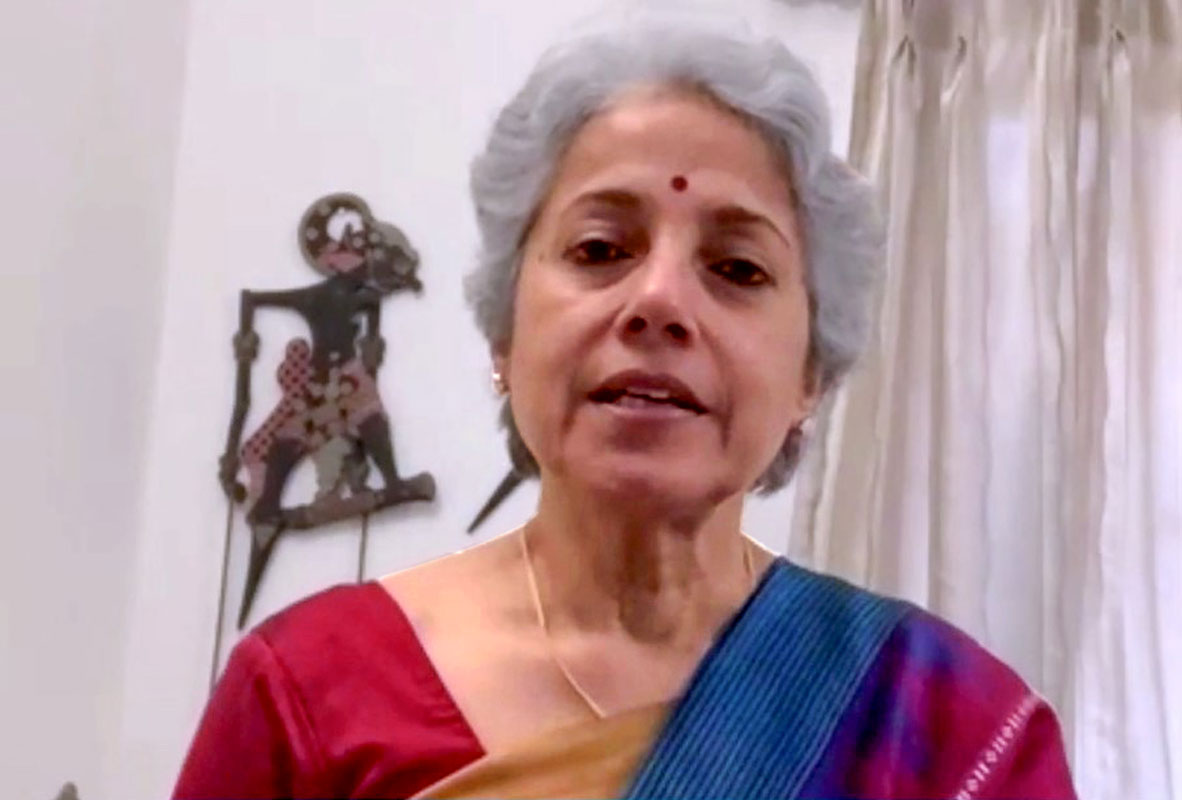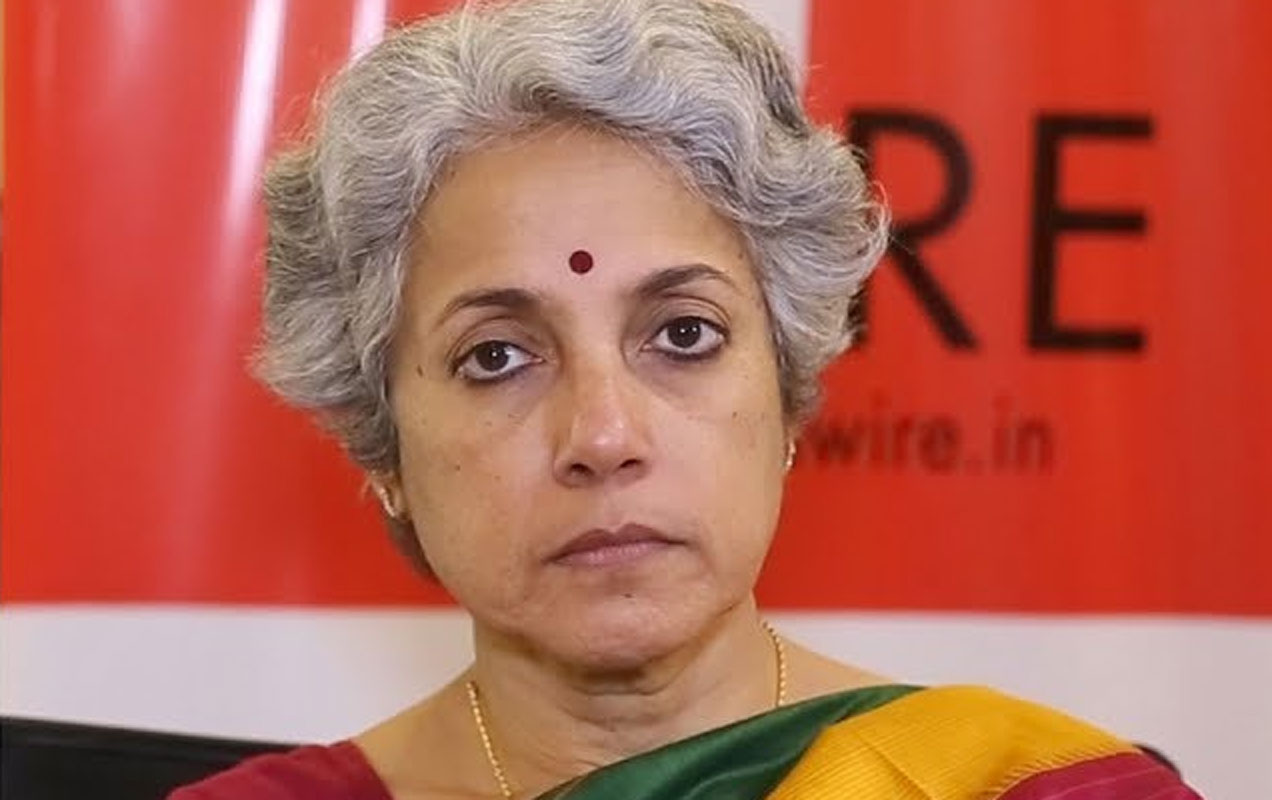Crucial public healthcare lessons from the Covid pandemic

The Covid-19 pandemic has taught scientists engaged in public health many valuable lessons, and the first one is that investment in public health is crucial. “There is no getting away from it,” said WHO chief scientist Sowmya Swaminathan addressing the RI zone institute.
But this is a tricky investment, because its success means the absence of outbreaks of epidemics and pandemics, and people could say this investment was not needed as everything is fine. But then everything remained fine only because of preparedness and investment in prevention. “We, human beings, are reactive by nature and generally go from a cycle of panic to neglect.” As happened last year due to Covid-19. First there was panic and now with the vaccination beginning, people were advocating “business as usual, saying we are not going to have another pandemic in our lifetime. But that is not true. In pandemics, the question is not ‘if’ but ‘when’. So as in the past, we should not go back to a cycle of neglect,” she said.
Another lesson pertained to the importance of “public health awareness. Practically all countries, both high and low income, have been found lacking. Even countries with very sophisticated and advanced tertiary healthcare systems are facing huge mortality due to Covid-19 because they did not have the essential public health services needed for containment, surveillance, isolation and contact tracing, quarantining and engagement with the communities to ensure they are complying and cooperating.”
The other lesson from the pandemic is that “as we already know, these viruses jump from animals to humans. It is because of climate change, deforestation, animal-human coming together, the farming of wild animals in many countries, the markets where wild and domestic animals are sold together. And the way people live. All these encourage the mixing of animal and human virus and emergence of new strains which can then infect humans and become very dangerous.”
This has happened several times in the past including with SARS, Zika, Ebola, Nipah, etc. “The point is that we are going to have future pandemics and need to be prepared by giving importance to investing in a public health workforce and primary healthcare systems.”
The latter, said Sowmya, went well beyond “only having a centre where you do diagnosis, and give medicines and treatment. Primary healthcare has to work on health promotion, disease prevention and all this through community engagement.” This aspect has been missing from primary healthcare systems across the world and “this is where Rotary can play an important part… in promoting health literacy.”
The final lesson she has learnt is that it is important for both political and other leadership “not only to be strong, but also humble and compassionate. Because this virus has taught us so many things. We need to be humble and can’t assume that we human beings know and can conquer everything. We need to be compassionate, because many, many people suffered and continue to suffer.”
Unfortunately, she added, the brunt of the suffering has been borne by those who are already at the bottom and struggling to survive… the informal workers, daily wagers, who were just making ends meet, those who were just progressing a little in life. And all of that has been set back now by several years. She had met several children, particularly girls, both in Chennai and a village where she recently travelled, who weren’t able to participate in online classes for lack of mobile phones or internet.
“Young women have suffered too; there has been an increase in domestic violence and trafficking of women and girls dropping out from schools. At one point 1.6 billion children were out of school. Currently it is still several hundred million children who are not only missing out on educational opportunities, but also on midday meals.”
Challenges ahead
For Rotary, there were many challenges ahead; of course, the last mile on ending polio has to be traversed but there were also other challenges like tuberculosis, which Rotarians are already tackling. “We all will also have to help with the education of young girls and boys who are facing difficulties because of the pandemic; we need to give a helping hand to these kids so that they can come up. We may say everything is digital and we live in an online world, but there is a digital exclusion as well. So the engineers and technocrats should think of ways to bridge that digital divide.”
Sowmya added that “on the human side, there needs to be compassion, we need to look out for each other, especially the less fortunate, as it is going to take a couple of years for them to get back to normal.”
Ending on a “bright and optimistic note” because the vaccines are coming, she added: “I believe there will be several vaccines that are safe and effective for Covid-19 so that a good chunk of the population can be vaccinated to create immunity. But this is going to take time. It will not happen overnight and not in the first half of 2021. But it will start happening in the second half of 2021, so we still need to be very careful and follow all the stipulated public health measures. We will see light at the end of the tunnel but we still need to walk through it. We need to walk together, supporting each other.”
She added: “Rotary is a great force, you have credibility, passion, the wherewithal and grassroots reach into the community. You have dealt with and almost got rid of one of the biggest scourges of mankind. Let’s continue to work together and think of innovative solutions to the common problems that we face.”
Covid affected immunisation, essential health services
Recalling the long journey of WHO and RI, WHO chief scientist Sowmya Swaminathan said that even though 2020 has been a challenging year, “there is a lot to celebrate, particularly in polio.” The first was the elimination of the wild poliovirus from the African continent. “This has been a long, painful, step-by-step process, taken up country by country, district by district and village by village, with a few countries really posing challenges. With Africa being certified polio-free, that leaves only Afghanistan and Pakistan.”
Another milestone this year was the approval of emergency use of the novel oral poliovirus 2 vaccine, the first vaccine to get WHO ‘emergency use’ listing. “And we are now looking at all these new Covid-19 vaccines.”
On the downside, Sowmya added, in 2020 because of the pandemic, the polio programme was adversely affected, just like many other health services across the world. A pulse survey done in July-August by the WHO in 120 countries found major disruptions in essential health services. Topping the list was routine immunisation which took a hit by 70–80 per cent in these countries, with the low-income countries being more impacted. In essential health services, 50 per cent were impacted in the poorer countries compared to the richer ones.
India saw a 50–60 per cent reduction in TB notification “because diagnostic machines were repurposed for the use of Covid-19. “The TB control programme and almost all other healthcare staff were repurposed for Covid-19. And people could not reach health centres because of the lockdown, lack of transport and fear of being infected by Covid. For all these reasons, surveillance and treatment for diseases like TB and malaria, anti-natal and young child services, non-communicable diseases like diabetes and hypertension programmes, essential surgery, blood transfusion were all affected, and cancer care was badly hit too.”
The polio programme also suffered; “we saw the frontline staff, who work on the ground for polio surveillance, being redeployed for Covid programmes. Their skills, experience, relationship with the communities came in very handy when overnight a new surveillance programme had to be set up for a new disease.”
Elaborating, the scientist said this means “that if you have a well-trained and well-functioning workforce, you can actually use it for multiple purposes.” In countries, where polio was under control for many years, that “workforce needs to be retrained and redeployed to monitor and keep an eye on both communicable and non-communicable diseases, and engage with the community.”

